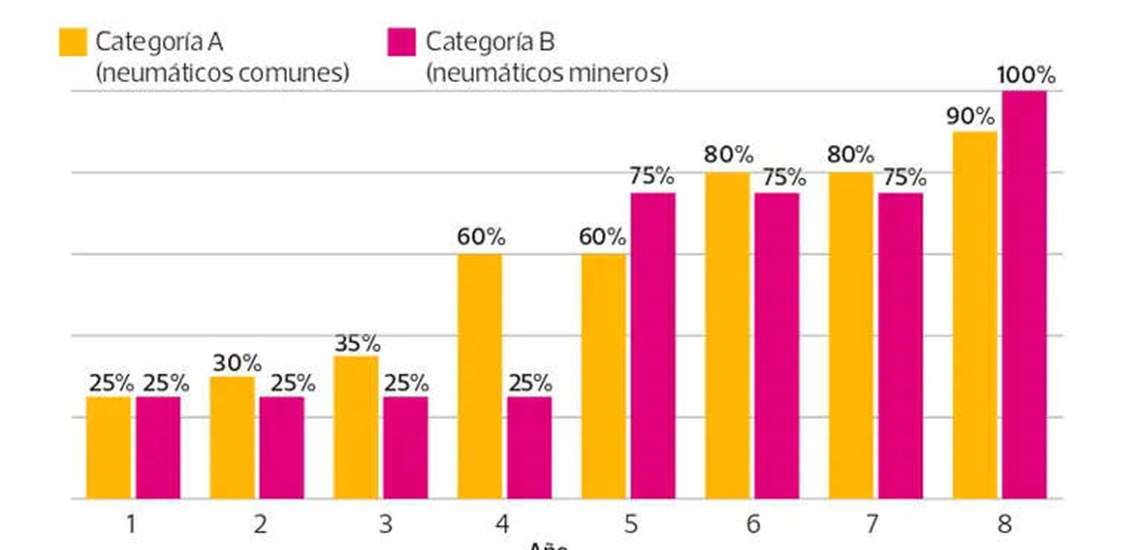Chile finally enacts its EPR law, with tyres being the first subject of a management scheme
The Chilean EPR Law will require that 90 per cent of conventional tyres must be recycled by 2030.
The regulation is the first of the six “priority products” contemplated by the recycling law. Manufacturers have until 2023 to develop a management system and, from now on, they must report the import of tyres into the country.
From 2023, companies that import tyres will have to recycle 25 per cent of tyres and collect 50 per cent. This is defined by the Law of Extended Producer Responsibility (EPR), which has now been published in the official gazette. This percentage gradually rises until reaching 90 per cent recycling of tyres by 2030 (100 per cent in the case of mining tyres).
The decree, which sets collection and recovery goals for tyres, is the first to come into force, out of a total of six “priority products”. The others are batteries, lubricating oils, electrical articles and household appliances, batteries and containers and packaging.
This is the final step in putting in place a structured tyre recycling programme and create a sustainable waste tyre policy in Chile, several years since it was first proposed.
Chile has around 6.6 million tyres arising annually, corresponding to about 180 thousand tons.
Considering wear and tear, the annual generation of tyre waste is estimated to be around 140 thousand tons.
Of those tons, only about 17 per cent are managed in an environmentally sound manner. Of the remaining percentage, a fraction ends up being illegally deposited in garbage dumps and clandestine landfills, with the exact destination of a large majority of tyre waste being unknown.
The Details
The extended producer responsibility will be applicable to companies that introduce tyres into the national market. The decree establishes the obligation for these companies – grouped in a management system – to organise and finance the collection of end-of-life tyres throughout the country, as well as their storage, transport, treatment in accordance with current regulations.
Regarding the latter, Daniel Rojas, general manager of the Chilean Tyre Retreading and Renovation Association (Arnec) indicates that they are talking with importers about it. “In the beginning it can be a collective system” and he adds: “The retreading sector has long prepared for this through an APL and the creation of a norm of retreading processes.”
Although the recycling requirement begins in 2023, from now, producers must comply with other obligations, for example, reporting the entry of tyres into Chile.
On the other hand, to ensure that all regions of the country benefit from the regulation, the decree establishes that in the Metropolitan Region there is a minimum collection of tyres corresponding to 15.3 per cent.
Two categories of tyres subject to REP regulation have been established:
Category A: These are the most common tyres. Technically, it includes tyres with a rim less than 57 inches, with the exception of those with a rim equal to 45 inches, 49 inches and 51 inches.
Category B: Mining tyres. Technically, it includes tyres that have a rim equal to 45 inches, 49 inches, 51 inches, and rims equal to or greater than 57 inches.
According to Carolina Schmidt, Minister of the Environment, “As a government we continue with work on the other decrees established by the REP law and a deep agenda that seeks to transform ourselves into a circular Chile without waste, which allows us to move from a linear economy, a creator of waste, to a circular in which the materials are used, promoting sustainable, inclusive and climate-resilient development “.




















